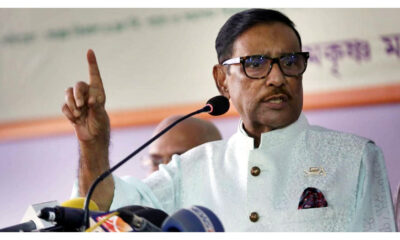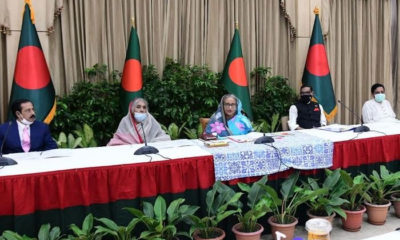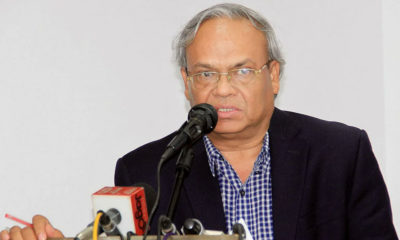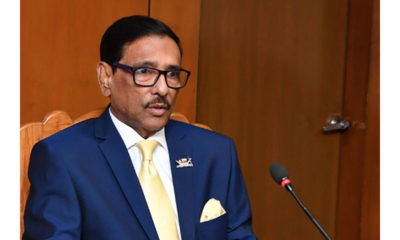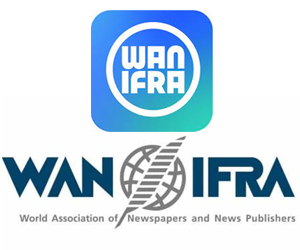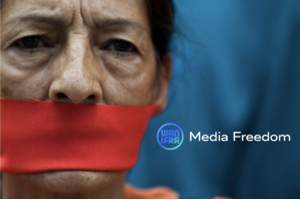Bangladesh
22 Fake Projects Exposed in Tk 19,000 crore ICT Embezzlement Scheme
Published
1 year agoon

During the previous Awami League government, 22 projects were fabricated to embezzle Tk 19,000 crore from the information and communication technology sector. After taking office, the interim government halted these projects and directed Project Directors (PDs) to cease all purchases. Additionally, a high-level, seven-member investigation team, led by an additional secretary, has been established to probe the matter.
Findings reveal that most of the 22 projects were initiated in 2016, with some scheduled to run until 2027. In several cases, project budgets were repeatedly increased. Each project was approved by policymakers of the previous government, with funds released based on their direct decisions and assigned to selected firms for procurement. Upon discovering these irregularities in the ICT sector, interim government officials voiced strong disapproval and instructed the inquiry committee to conduct a thorough investigation. The committee has already commenced its work.
Officials stated that the investigation is focused on three key aspects of the projects: the amount of money embezzled, the government and political figures involved, and the details of the institutions awarded the contracts.
The investigation found that the largest project under the Directorate of Information and Communication Technology was the Digital Connectivity (EDC) initiative, valued at Tk 5,923.73 crore. This project, launched in December 2021, is scheduled to run until November 2026. Joint Secretary Tanzina Islam, appointed as the project director, stated that she could not provide detailed information but confirmed to Bangladesh Pratidin that work worth Tk 200 crore has been completed so far.
The next largest project is the “Enhancing Digital Government and Economy” (EDGE) project, valued at Tk 2,541 crore, with Joint Secretary Sakhawat Hossain serving as its Project Director. The third-largest project, a Tk 1,846 crore initiative, involves establishing IT/Hi-Tech Parks across 12 districts (first revised project). The fourth-largest, valued at Tk 1,534 crore, is the “Sheikh Hasina Institute of Frontier Technology.”
Among the 22 projects, the smallest is the Tk 27 crore “Education Online for Initiation-Skill Development.” While Mohammad Kabir Hossain is listed as the Project Director, his identity details were not provided. Most Project Directors declined to share specifics about their projects with Bangladesh Pratidin.
The Tk 837 crore “Sheikh Kamal IT Training and Incubation Center” (covering 11 projects, 1st Revised) faced delays despite being initiated in 2020, Project Director Raja Muhammad Abdul Hai told Bangladesh Pratidin. He noted that while the project is currently on hold, its budget may be reduced.
Additional Secretary Manwara Ishrat, the Project Director of the Tk 287 crore “Empowerment of Women Through Technology” (Phase 2) project, reported that Tk 187 crore has already been spent, with Tk 78 crore allocated for the current year. When asked if these projects were initiated with embezzlement in mind, Information and Technology Department Secretary Sheesh Haider Chowdhury told Bangladesh Pratidin that due to numerous concerns surrounding these projects, all related procurements were halted by the current government at the outset.
Projects have been suspended at their current stages, with no new work being undertaken. He stated that the primary focus is on evaluating the transparency of the procurement process, specifically whether contracts were awarded with bias. Additionally, he noted that the investigation will examine whether project costs were inflated, such as if tasks valued at Tk 5 were billed at Tk 20.
He mentioned that a high-level, seven-member committee has been formed to address these issues, led by an additional secretary and including audit and legal experts. However, he emphasized that they are not waiting for the committee’s final report. For projects under scrutiny—such as one where only five out of seven floors have been completed—work is being halted. He also pointed out that some projects involved land acquisition in rural areas, but if developed, these areas would lack people to utilize them. One such site in Patuakhali has already been canceled.
He added that once the investigation committee’s report is received, the nature and extent of the corruption in these projects will be revealed, along with the total amount involved.
A beautiful building with modern facilities has been constructed near former minister Zunaid Ahmed Palak’s residence in Singra, Natore, and advanced computers were purchased with a foreign loan. However, there has been no activity at the site. I recently visited the location myself and have tasked the UNO with overseeing the matter. The secretary confirmed that not only will the embezzlement be investigated, but also those involved in these irregularities. Efforts are underway to gather details on which individuals in our department were involved, which political figures were connected, and which firms were awarded the contracts.
The controversial 22 projects include a range of large-scale initiatives, such as the Tk 330 crore Mobile Games and Application Skill Development Project, the Tk 855 crore Aspire to Innovate (A2I) Project, and the Tk 27 crore Initiation-Skill Development Education Online project. Other notable projects are the Tk 442 crore Establishment of Innovation and Entrepreneurship Development Academy (3rd Revised), the Tk 158 crore Enrichment of Bengali Language in Information Technology through Research and Development (1st Revised), and the Tk 30 crore Digital Sylhet City Project (2nd Revised). Additionally, the Tk 504 crore Establishment of Connectivity in Telecommunication Underprivileged Areas (Connected Bangladesh) Project, the Tk 167 crore BGD-E-Govt Project, and the Tk 2,541 crore Enhancing Digital Government and Economy (EDGE) Project are also under scrutiny. Smaller initiatives, such as the Tk 49 crore Government Video Conferencing Platform Strengthening Project and the Tk 8 crore Partnerships for a More Tolerant, Inclusive Bangladesh (PTIB), have also raised concerns. These projects have become the focus of controversy due to allegations of financial mismanagement and lack of transparency.
In addition, there are several high-value projects under the Bangladesh Hi-Tech Park Authority, including the Tk 837 crore Sheikh Kamal IT Training and Incubation Center (11 projects, 1st Revised), the Tk 1,886 crore IT/Hi-Tech Parks at the district level (12 districts, 1st Revised), and the Tk 533 crore Sheikh Kamal IT Training and Incubation Center Establishment (2nd Revised) Project. Other significant initiatives include the Tk 431 crore Bangabandhu Hi-Tech City-II Supporting Infrastructure Project (2nd Revised), the Tk 353 crore Digital Entrepreneurship and Innovation Ecosystem Development Project, and the Tk 74 crore Bangladesh-India Digital Services and Employment Training (BDSET) Center. The Tk 1,534 crore Sheikh Hasina Institute of Frontier Technology and the Tk 1,114 crore Sheikh Kamal IT Training and Incubation Center (14 projects) also fall under scrutiny.
Additionally, the Directorate of Information and Communication Technology oversees three major projects: the Tk 936 crore Digital Labs Setup in Educational Institutions (2nd Phase), the Tk 5,923 crore Establishment of Digital Connectivity (EDC) Project, and the Tk 287 crore Empowerment of Women through Technology (2nd Phase) Project.
Bangladesh
Bangladesh’s Press at a Crossroads: Between Promises of Reform and the Shadows of Repression
Published
6 months agoon
August 14, 2025
By Md Mojahidul Islam Dheow
Bangladesh’s press is at a crossroads. A year after the mass uprising of 2024 promised a fresh dawn for the country’s long-troubled media, journalists still move under a heavy cloud of political, institutional, and psychological pressure. Across the nation, more than 250 cases have been filed against reporters in the last 12 months—not all for crimes of substance. Some are clear attempts to stifle critical reporting; others stem from something as ordinary as a social media post. The message is unmistakable: those who challenge authority face serious consequences.
Legal reform has offered a glimmer of hope with the newly debated Section 173A of the CrPC, 1898, which allows an accused to be discharged during investigation if a high-ranking police supervisor finds insufficient evidence. But the question remains: will this tool be used impartially—or selectively, to shield the powerful and punish dissenters?
The dangers facing journalists were made starkly clear on August 7, when Asaduzzaman Tuhin was killed while on duty. Just a day earlier, Anwar Hossain was assaulted while reporting on extortion at a Gazipur CNG auto-rickshaw stand. These incidents are not isolated—they are part of a pattern of violence and intimidation aimed at silencing the press.
Even the newly crafted Cyber Security Ordinance (CSO) 2025—intended to replace repressive predecessors like the Digital Security Act (DSA) 2018 and the Cyber Security Act (CSA) 2023—retains troubling elements. While some contentious sections have been removed, Section 42 still allows the use of repressive tools drawn from the ICT Act 2006, the Evidence Act 1872, and the CrPC. Vague phrases such as “public confusion,” “threats to national security,” and “anti-state acts” remain undefined, enabling broad crackdowns on civil liberties, journalism, and political opposition.
Beyond the legal framework lies a deeper crisis. Corporate influence and editorial compromises have long weakened investigative journalism in Bangladesh. The media’s role as a pillar of democratic accountability has eroded, with many outlets beholden to owners’ political and commercial interests. With no substantial institutional reform since the change in government, the press remains vulnerable to regulatory harassment, licensing obstacles, and punitive taxation whenever coverage strays from the “approved” line.
Two proposed reform measures—the Journalists’ Protection Ordinance 2025 and the National Media Commission Ordinance 2025—once promising, are stalled in bureaucratic limbo. The “one house, one media” policy, intended to prevent individuals or organizations from owning multiple outlets, remains unrealized despite the Media Reform Commission’s advocacy.
Even the Bangladesh Press Council risks becoming yet another instrument of state control unless its mandate is reimagined to prioritize journalist protections. Political divisions within journalist unions and media organizations further weaken any unified stance for press freedom. Ownership patterns skew licensing and content toward vested interests, while dissenting voices are punished through regulatory harassment or punitive audits. Inside newsrooms, self-censorship grows as fear of legal trouble and professional retaliation suppresses candid reporting. Whistleblowers remain silent, and investigative journalism is increasingly replaced by risk-averse coverage.
What Bangladesh needs is a national framework for self-regulation that binds all outlets: an internal editorial code of conduct, a grievance redressal mechanism, anti-harassment policies, and straightforward complaint resolution processes. A transparent, independent media ombudsman should adjudicate defamation claims and public complaints. Only with genuine independence, accountability, and a clear commitment to journalist safety can the industry rebuild trust and integrity.
Beyond reform, there is an urgent need for immediate protection and practical empowerment of reporters in the field. The proposed Journalists’ Rights Protection Ordinance 2025 aims to codify such protections, with penalties of up to five years’ imprisonment and substantial fines for violence against journalists. It would:
(a) defend journalists from violence, threats, and harassment;
(b) shield sources and protect newsroom independence;
(c) guarantee the right to work without fear;
(d) ensure safe reporting environments within media organizations;
(e) safeguard good-faith reporting; and
(f) establish clear complaint, investigation, and trial procedures.
The ordinance mandates that fines can be directed as compensation to the harmed journalist and holds both individuals and, when applicable, organizations accountable for failing to prevent or address abuses.
If implemented effectively, it could mark a turning point. But enforcement requires a judiciary capable of handling cases efficiently and free from political influence. Authorities must be bound by law to protect journalists, safeguard newsroom neutrality, and defend those who publish information in the public interest.
The current moment is pivotal. Real reform demands more than laws on paper—it requires political courage, institutional independence, and a mature democratic culture. Journalists must unite beyond political divides, media owners must shed partisan agendas, and the state must commit to protecting the very people who hold it accountable.
Time is slipping away. Each delay erodes public trust, silences more journalists, and buries more truths. If Bangladesh is to have a democracy worthy of the name, it must build a press that is free, secure, and independent—not as an ornament of democracy, but as its beating heart.
Bangladesh
Investigation: Hasina’s ‘Shoot Directly’ Order and Its Deadly Consequences
Published
7 months agoon
July 25, 2025
On the morning of July 27, 2024, Sheikh Hasina stood silently at the podium of the National Institute of Traumatology and Orthopedic Rehabilitation (NITOR), commonly known as Pongu Hospital, in Dhaka.
For nearly 14 seconds during her eight-minute emotional speech, the former prime minister remained silent. A visible pain marked her face, reflecting the weight of the bloodshed that had occurred since July 16, when police forces fatally shot Abu Sayed in Rangpur with lethal weapons. That day, five more lives were lost amidst violence in Dhaka and Chattogram.
By the time Hasina addressed the crowd at NITOR, the death toll across the last two weeks had reached at least 162, many of whom had been shot with military-grade weapons by state security forces, according to The Daily Star’s investigations.
“I seek justice from my fellow citizens. What crimes have I committed to deserve this?” 77-year-old Hasina asked after visiting some of the injured at the hospital.
“I don’t want any mothers to lose their children like this. I’ve lost my parents; I know the pain… So many lives have been lost, so many families shattered. Who is responsible for all this?…” she began, but then, overcome with emotion, she left the stage in tears, unable to finish her words.
This heartfelt public address sharply contrasts with what was happening behind the scenes. An investigation by The Daily Star reveals that a state-sponsored machinery for mass violence had already been put into motion.
Just nine days earlier, on the evening of July 18, 2024, a phone rang inside the ousted prime minister’s residence, Gonobhaban, and Sheikh Hasina answered. On the line was Sheikh Fazle Noor Taposh, then the mayor of Dhaka South City. What followed was a startling disclosure of a lethal plan.
“We are now doing things differently. We are capturing photos with drones, and sending helicopters to several places,” Hasina told Taposh.
“Wherever they [the state forces] see gatherings, from the sky… I am getting it done from above, already started in several areas… already underway,” she said, while Taposh repeatedly pressed for launching a large-scale arrest campaign.
Bangladesh
WB to provide $250m loan to modernise five public sector functions
Published
8 months agoon
June 15, 2025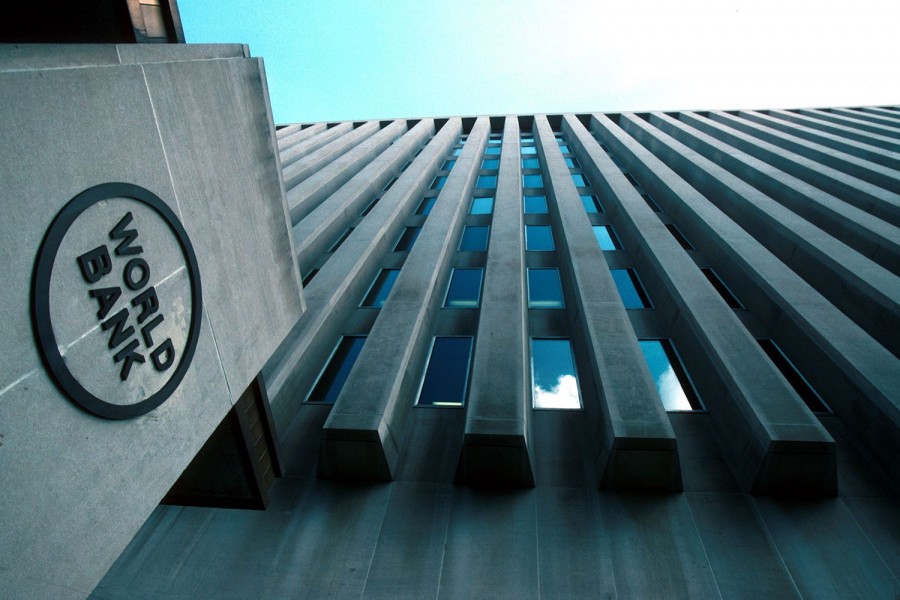
The World Bank (WB) would provide US$250 million funds to facilitate improving transparency, accountability, and efficiency of some key government agencies in Bangladesh.
FE
The WB board on Saturday approved the loan to support the ongoing reform initiatives of the interim government, aimed at modernising crucial public sector functions.
These are essential for improving data transparency, domestic revenue mobilisation, public investment management, public procurement, and financial oversight, according to a statement issued on Saturday.
Under the Strengthening Institutions for Transparency and Accountability (SITA) project, five key government agencies – the Bangladesh Bureau of Statistics (BBS), the National Board of Revenue (NBR), the Planning Division, the Bangladesh Public Procurement Authority (BPPA), and the Office of the Comptroller and Auditor General (CAG) – would reform their operational activities.
The project is expected to streamline operations and improve service delivery within the five agencies and enhance access to reliable public statistics, crucial for transparent and accountable decision-making and policy formulation.
It will help modernise tax administration and increase tax compliance, thereby improving much-needed revenue mobilisation and fiscal sustainability.
The WB loan will also help improve the efficiency and accountability of public spending, ensuring that resources are utilised effectively for the benefit of all citizens.
It will develop a second generation of electronic government procurement (e-GP) and broaden its scope. The project will also help strengthen and digitise public audit.
Gayle Martin, the World Bank’s Interim Country Director for Bangladesh, on Saturday said: “The investment will leverage digitisation of business processes to help improve transparency and reduce corruption, by supporting Bangladesh in modernising public institutions capable of serving an emerging economy.”
This project will help improve the quality and accessibility of public services and thus enhance public trust in government institutions, she added.
According to the statement, the Bangladesh government and the WB are also preparing a development policy credit scheduled for the bank’s board discussion later this month.
Such credit is expected to support transparency and accountability in domestic revenue mobilisation, the banking sector, data production and dissemination.
Souleymane Coulibaly, World Bank Lead Country Economist and Task Team Leader for the project, said: “This project and the proposed development policy credit would be complementary and provide the government both the necessary hardware and software for improving public financial management and public service delivery.”

From Confusion to Clarity: Dheow’s Book Helps Users Master ChatGPT Conversations

Pre-Orders Open for Mojahidul Islam’s Latest Computer Book ‘AI Shikhun, Taka Gunun’

Bangladesh’s Press at a Crossroads: Between Promises of Reform and the Shadows of Repression



